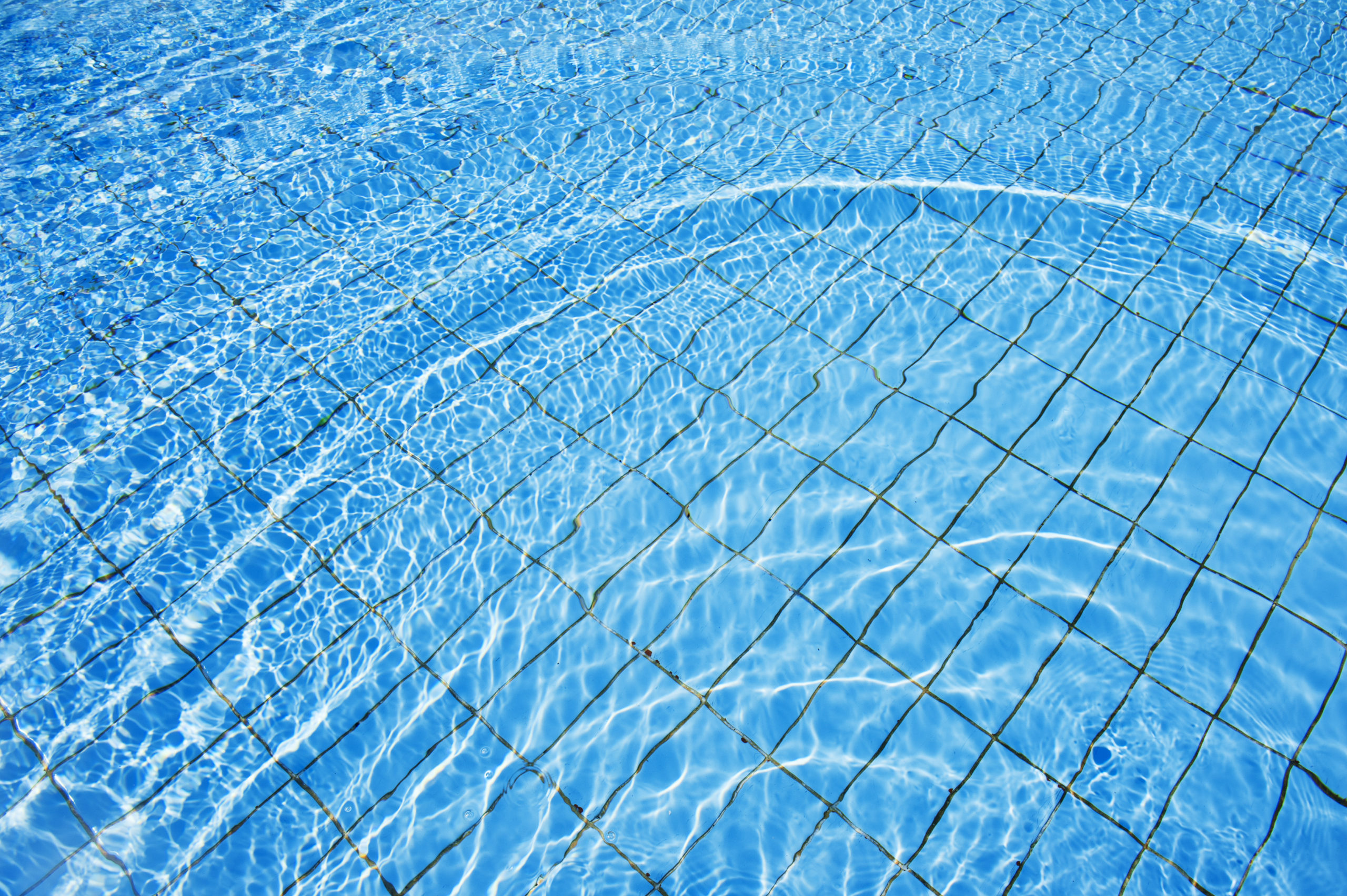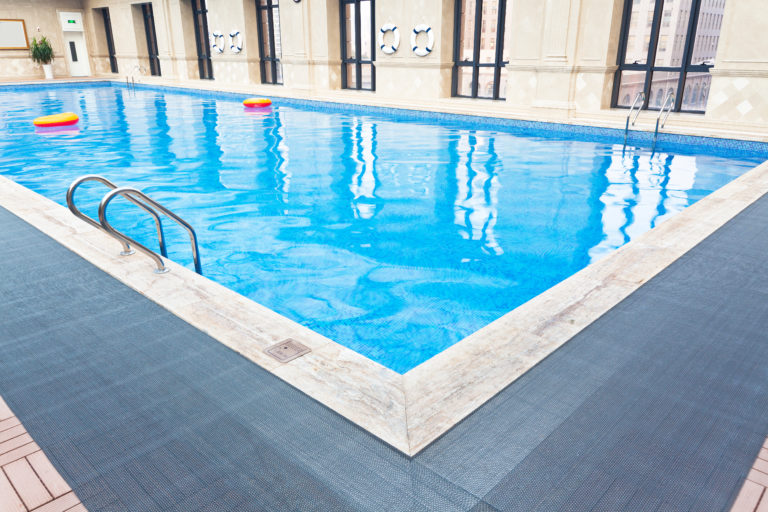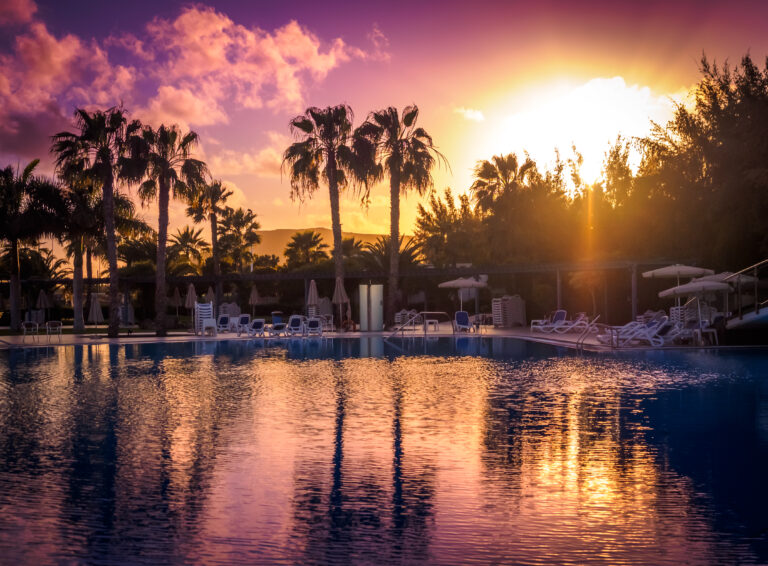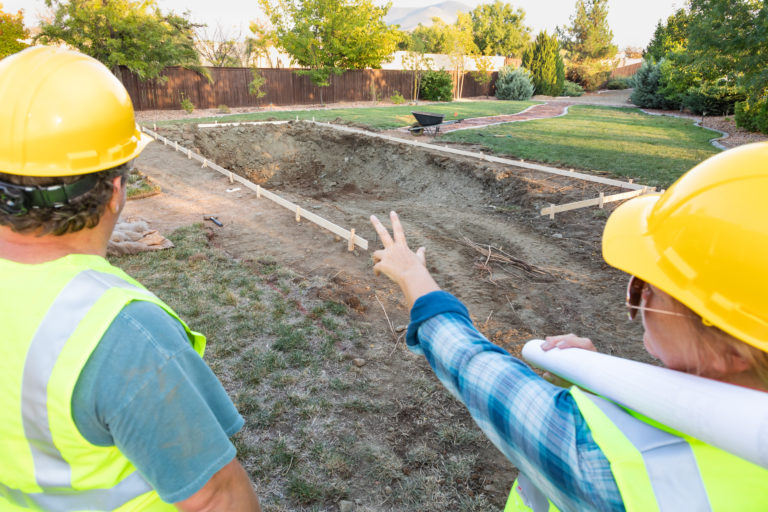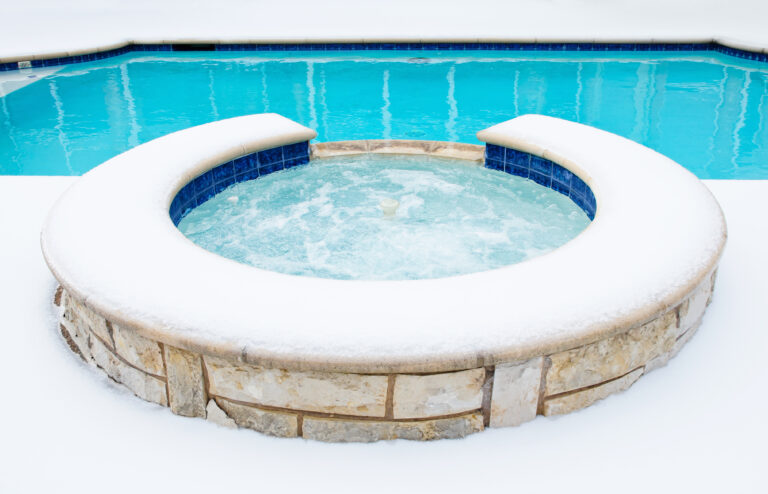The Secrets to Maintaining Crystal Clear Pool Water
You’ve got a stunning pool, but is your water crystal clear? Don’t let cloudy water ruin your fun in the sun. We’re here to reveal the secrets to maintaining pristine pool water.
You’ll learn about effective cleaning, understanding chemicals, smart filtration, and efficient circulation. So dive in! Let’s make sure you’re equipped with the knowledge to keep your pool sparkling all summer long.
The Importance of Regular Pool Cleaning
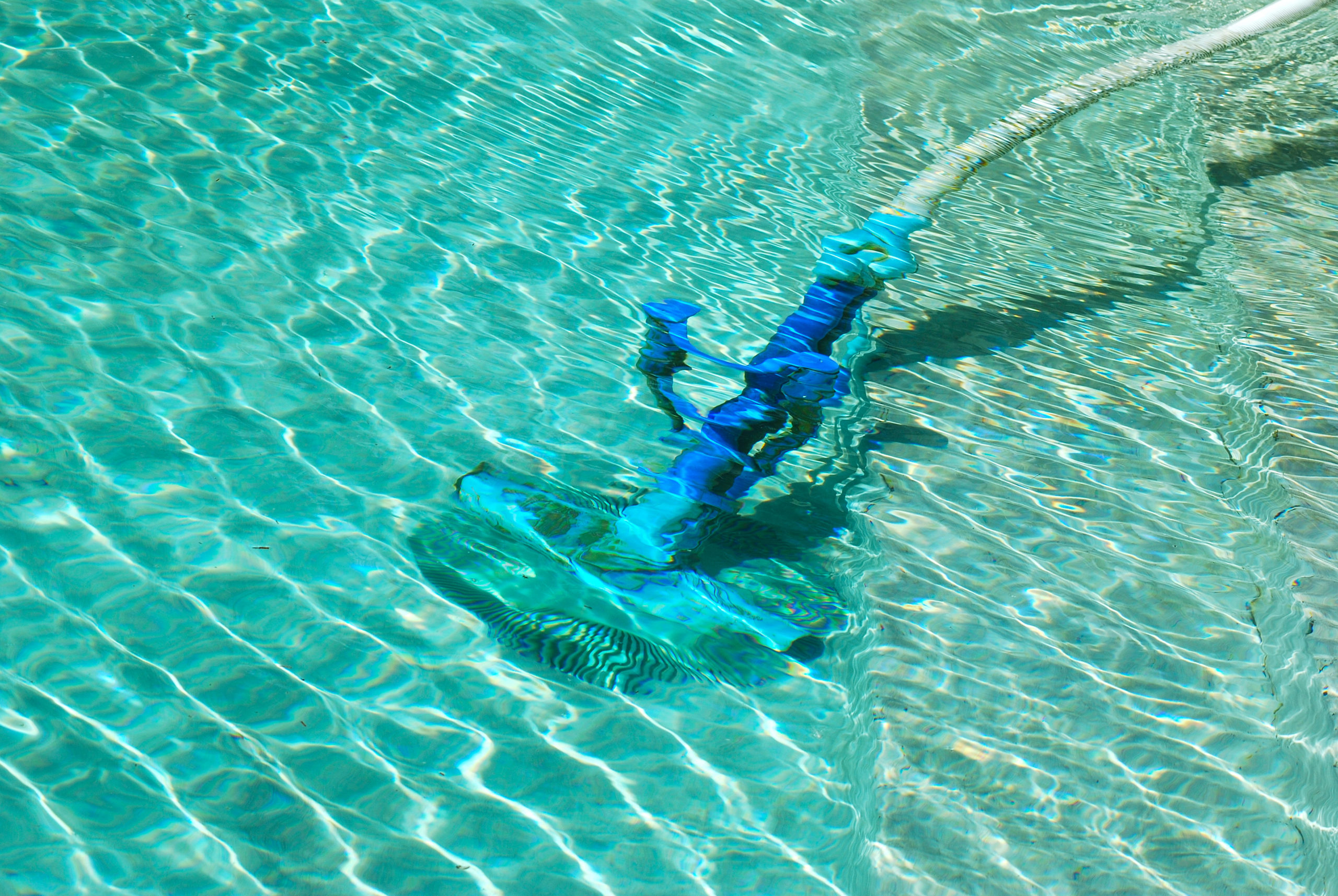
You’re probably wondering why regular pool cleaning is so important, aren’t you? Well, let’s dive into it.
Firstly, it plays a crucial role in algae prevention. Algae are microscopic organisms that thrive in warm environments like your pool. They multiply rapidly, turning your crystal clear water into a greenish nightmare. Regular pool cleaning disrupts their growth cycle, keeping those pesky invaders at bay.
Now onto equipment maintenance. Your pool’s pump and filter system are its lifeline. Just as you wouldn’t let your car go without an oil change or a check-up, you shouldn’t neglect the upkeep of these vital components either. Dirt and debris can clog them up over time, causing undue strain and potential breakdowns which could be costly to repair.
In fact, by doing regular maintenance checks on your equipment and keeping that algae under control with routine cleanings, not only do you ensure the longevity of your pool but also create a healthier swimming environment for everyone who uses it.
There you have it! The importance of regular pool cleaning goes beyond aesthetics-it’s about algae prevention and equipment maintenance too.
Understanding Pool Chemicals and Their Roles
It’s crucial to understand the role of various chemicals in keeping your swimming area hygienic and safe. Grasping the chemical balancing basics will make a huge difference in maintaining clear pool water.
Here’s what you need to know:
* Sanitizers are the key ingredients that kill bacteria and other harmful contaminants.
* Algaecides are used to prevent and treat algae growth, a common nuisance in pools.
* Balancers regulate pH, alkalinity, and calcium hardness levels for optimal water balance.
* Shocks oxidize contaminants, allowing sanitizers to work more effectively.
* Clarifiers bind tiny particles together so they can be easily filtered out.
Understanding algaecides is particularly important as they tackle one of the most persistent problems: algae growth. They stop algae from using up chlorine, ensuring it remains free for sanitization purposes.
Remember, each chemical has its role. It’s about finding that perfect balance which keeps your pool safe yet enjoyable at the same time.
Take this knowledge with you on your journey towards achieving crystal clear pool water!
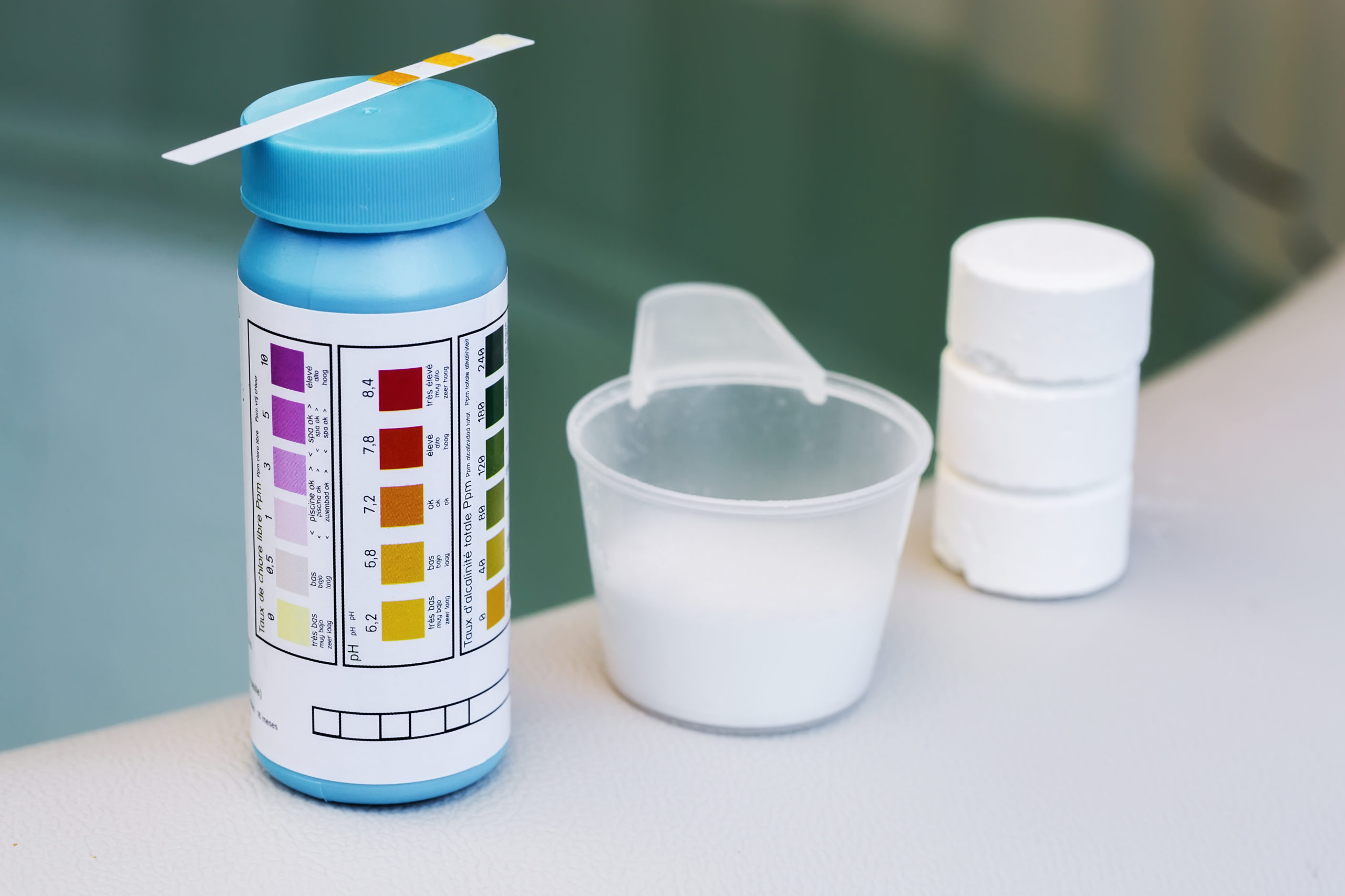
Tips for Effective Pool Filtration
Let’s delve into some effective tips for pool filtration, an essential component of keeping your swimming area clean and healthy.
Different filter types play a vital role in this process. Cartridge filters are great for smaller pools, as they’re easy to maintain, while sand filters are excellent for larger pools due to their high volume capacities. Diatomaceous earth (DE) filters stand out with their ability to filter the smallest particles out of the water.
Energy efficiency is another crucial aspect you need to consider when thinking about pool filtration. Your pump can be one of the most energy-consuming pieces of equipment associated with your pool if not managed correctly. Use it wisely by running it during off-peak hours or using a timer system.
Regularly cleaning your filter will also contribute significantly to its effectiveness and extend its life span. Don’t just wait until it’s visibly dirty – establish a routine cleaning schedule. Remember, proper maintenance doesn’t end with chemical balance; efficient filtration is equally important in achieving crystal clear water in your pool.
The Role of Pool Circulation in Water Clarity
Circulation plays a pivotal role in maintaining water clarity. It is responsible for distributing chemicals evenly and preventing debris accumulation. By manipulating circulation patterns, you can enhance your pool’s overall cleanliness and clarity.
Your pool’s pump is the heart of its circulation system. Pump efficiency is key to maintaining a clean and clear pool. It’ll be worthwhile investing in an energy-efficient model that provides consistent performance while consuming less power.
Here are some factors that affect pool water clarity:
– Regular brushing: This helps dislodge algae and prevent buildup on the pool walls.
– Pool chemistry balance: Maintaining correct chemical levels is crucial for clear water.
– Pump run time: Running your pump for at least 8 hours a day ensures proper circulation.
– Skimmer basket cleaning: Regular cleaning prevents clogs, allowing better water flow.
– Filter maintenance: A well-maintained filter system helps keep your water crystal clear.
In essence, through understanding the importance of circulation patterns and pump efficiency, you’re one step closer to achieving that sparkling clean swimming pool you’ve always wanted.
Preventive Measures to Keep Your Pool Water Crystal Clear
You’ll find that preventive measures are key to avoiding murky and uninviting conditions in your swimming area. Regular maintenance, like algae prevention and shock treatment, should be part of your pool care routine.
Algae prevention is crucial for maintaining a crystal clear pool. Algae spores can enter your pool from various sources such as wind, rain or even contaminated swimwear. To prevent these spores from multiplying into a full-blown algae bloom, you need to regularly check and adjust the chemical balance of your pool water. This includes maintaining an appropriate pH level, ensuring sufficient levels of sanitizer like chlorine, and using an algaecide if necessary.
Shock treatment is another important preventive measure. Over time, contaminants such as sweat, sunscreen residues or body oils can accumulate in the water leading to cloudiness or unpleasant smells. By applying a shock treatment weekly or after heavy usage of the pool, you will help ‘burn off’ these impurities leaving behind sparkling clean water.
Frequently Asked Questions
What Are the Effects of Weather Conditions on Pool Water Clarity?
Weather can affect your pool’s clarity. Rain dilutes the chemical balance, affecting its relevance in keeping water clear. Sunlight promotes algae growth. Both impact your filtration system’s efficiency, requiring you to adjust it accordingly.
How Does the Type of Pool Lining Material Affect Water Clarity?
The type of pool lining material can affect your water clarity. Lining durability impacts how well it resists algae growth. Material absorption affects chemical balances which, if off, can cloud your pool’s water.
Are There Any Specific Pool Accessories That Can Help Maintain Clear Water?
Yes, specific pool accessories can indeed help maintain clear water. Consider exploring various filter options and regularly checking your pool’s chemical balance. Both are crucial in maintaining the clarity of your swimming pool water.
How Does the Pool’s Location (Indoor Vs Outdoor) Impact the Maintenance of Clear Water?
Your pool’s location significantly impacts its water clarity. Outdoor pools face location-based contamination like leaves and dirt. Indoor pools, however, struggle with indoor humidity issues that can cloud the water if unmanaged.
Can the Type of Water (Saltwater Vs Freshwater) Used in the Pool Affect Its Clarity?
Absolutely, the type of water can impact its clarity. In saltwater pools, you’re dealing with different chemical balances. Freshwater pools often require more diligent water filtration to maintain clear, sparkling water.

